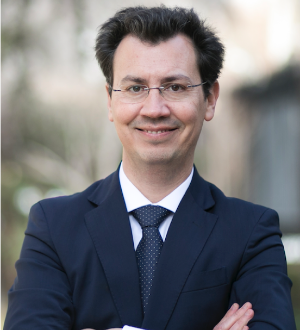Best Lawyers in Spain for Communications Law
Practice Area Overview
A significant part of this practice concerns compliance with sector-specific regulation (licensing and authorisation, access and interconnection, numbering, spectrum, rights of way, network security and interception, price and other contract terms, mandatory services, reporting, and other regulatory obligations) and representation before communication regulatory authorities. However, communication lawyers should also assist in other regulation areas relevant to communication services and networks: personal data protection, consumer rights, planning and environmental protection, public procurement, electronic commerce, media regulation, and competition law. Being a sector in constant evolution with emerging technologies and overlapping markets, regulatory advice on prospective legislation and lobby with the policy makers are part of this legal practice.
The transactional part of communications law encompasses negotiation of all type of agreements with other competitors (access, interconnection, roaming, infrastructure and network sharing, establishment of technical standards), providers (rights of way, construction, rights of use and leases, equipment purchase, maintenance services, outsourcing, technology licences, content licences, agency and distribution, private equity and financing), and customers (general contract terms, resale, managed services, service level agreements). Communication lawyers also play a major role in mergers and acquisitions, joint ventures, and corporate advice to the communication industry.
Communication lawyers cannot disregard dispute resolution. The correct management of disputes range from early assessment review, negotiation, mediation, and other alternative dispute resolution techniques to final arbitration or litigation. Dispute resolution may require the intervention of regulatory authorities or even litigation against such authorities. Expertise in the communication industry contributes to find agreeable business solutions to avoid conflict efficiently.
The practice of Communication Law inextricably reflects business, regulation, and technology intertwined in the communication industry.
Lawyers who have a subscription to profiles appear first.
Would you like to claim your lawyer profile?
Contact UsOur Methodology
Recognition by Best Lawyers is based entirely on peer review. Our methodology is designed to capture, as accurately as possible, the consensus opinion of leading lawyers about the professional abilities of their colleagues within the same geographical area and legal practice area.
The Process
Best Lawyers employs a sophisticated, conscientious, rational, and transparent survey process designed to elicit meaningful and substantive evaluations of the quality of legal services. Our belief has always been that the quality of a peer review survey is directly related to the quality of the voters.




